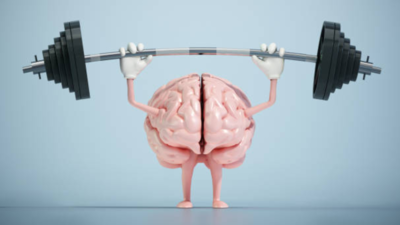The human brain is one of the most vital organs, controlling every function of the body, from basic survival instincts to complex reasoning and creativity. Maintaining a healthy brain is crucial for success, as it directly impacts productivity, decision-making, emotional balance, and creativity. Successful people recognize this and adopt habits that ensure their brains remain sharp and efficient.
Success isn’t just about hard work or talent—it’s also about maintaining a healthy mind. Successful people ensure their brains remain sharp, resilient, and capable of tackling challenges. You too, following their examples, will develop a healthier brain and sharpen your thinking, better equipping you for professional and personal success. And as you make these practices habits, not only will they reshape your mind, but reshape your entire life.
Below are 10 habits that contribute to a healthy, high-performing brain.
Sleeping on time, no matter how busy life gets
Sleep is the foundation of brain health. During sleep, the brain consolidates memories, flushes out toxins, and resets for the next day. Successful individuals like Jeff Bezos, the founder of Amazon, emphasize the importance of getting 7-8 hours of sleep each night. Bezos has often stated that proper rest enhances his decision-making ability and productivity.
Lack of sleep can lead to cognitive decline, poor focus, and even long-term issues like dementia. Prioritizing quality sleep ensures the brain is well-rested and ready to perform at its peak.
Eating healthy and not going for processed foods
A healthy diet is vital for brain function. Successful people know how food affects their mental performance and are very particular and select diets that are rich in brain-boosting nutrients. Fatty fish, nuts, berries, leafy greens, and whole grains provide necessary vitamins and antioxidants that protect the brain from oxidative stress.
No matter how tight the schedule is, they do not compromise on physical activity
Physical activity is not only beneficial for the body but also to the brain. The growth of new neurons is stimulated and the risk of cognitive decline reduced through increased blood flow to the brain as a result of physical activity. It has been proved that even moderate exercise such as walking for 30 minutes every day can greatly improve the functioning of the brain.

Learning never stops for these individuals
The brain thrives on stimulation, and successful people feed this need by continuously learning. Engaging in new activities, acquiring skills, or simply reading regularly keeps the brain active and adaptable.
Warren Buffett, the billionaire investor, famously devotes 80% of his day to reading and learning. Lifelong learning fortifies new neural connections and even generates new ones that reduce the risk of mental stagnation and age-related cognitive decline. Whether it’s learning to paint or taking up a new hobby altogether, constantly challenging the brain is key to growth.
Stress is a part of their life and they know how to handle it well
Chronic stress can have a detrimental impact on brain health, affecting memory, focus, and emotional regulation. Successful individuals adopt stress-management techniques to protect their mental well-being.
Oprah Winfrey, for instance, credits meditation for helping her stay centered and focused despite her demanding schedule.
Practices like mindfulness, yoga, and breathing exercises help reduce stress levels, enhance emotional resilience, and improve overall brain health. By managing stress effectively, individuals can maintain clarity and make better decisions.
They always make sure to have relevant and strong social connections
Social interaction is vital for emotional and cognitive health. Successful people recognize the importance of nurturing relationships and surrounding themselves with positive, supportive individuals. Former US President Barack Obama has often emphasized the role of his family and close friends in keeping him grounded and emotionally balanced.

Regular social interactions stimulate the brain, boost mood, and reduce the risk of depression and cognitive decline. Whether it’s spending quality time with family or networking with peers, staying connected is key to maintaining mental well-being.
Staying organized and disciplined is one of the most underrated tonics for the brain
Clutter and disorganization can overwhelm the brain and reduce productivity. Successful people adopt habits that keep their minds clear and focused. Staying organized not only helps prioritize tasks but also minimizes stress and distractions. Techniques like to-do lists, time blocking, and decluttering physical spaces can enhance focus and cognitive performance.
They don’t indulge into excessive digital usage
Excessive screen time and constant notifications can overwhelm the brain and impair focus. Successful individuals set boundaries to manage their digital consumption.
10 healthy foods that keep you feeling full longer
Limiting social media use, turning off non-essential notifications, and setting aside tech-free time can help the brain recharge. This habit improves concentration, reduces stress, and fosters creativity.
Cultivating a positive mindset helps them achieve more
A positive mindset has a profound impact on brain health. Successful people practice gratitude, optimism, and resilience to navigate challenges effectively.
Cultivating a positive attitude not only boosts emotional well-being but also strengthens neural pathways associated with happiness and resilience. Practices like journaling, affirmations, and focusing on accomplishments can help maintain a constructive outlook.
They always stimulate the brain with good mental exercise
Mental stimulation keeps the brain agile and prevents cognitive decline. Successful people engage in activities that challenge their minds, such as puzzles, chess, or strategic games. Bill Gates, for instance, enjoys playing bridge, a card game that requires strategy and concentration.

Activities like solving crosswords, playing musical instruments, or learning new languages stimulate different parts of the brain, enhancing problem-solving skills and creativity.











